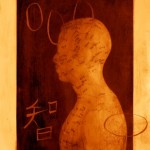 I received an email from someone in our community last week that really impressed me. She was accurate in her assessment and precise in her question: “What makes your practice so different than most licensed acupuncturists?” I’m sure many people have the same basic questions about education, licensing etc., so I posted her email and my response. Her email is in italics and my response is in bold.
I received an email from someone in our community last week that really impressed me. She was accurate in her assessment and precise in her question: “What makes your practice so different than most licensed acupuncturists?” I’m sure many people have the same basic questions about education, licensing etc., so I posted her email and my response. Her email is in italics and my response is in bold.
Hi – while I’m being treated very well in my present practitioners’ care, I have often walked past your office and wondered what a DAOM level practitioner can offer that an L.Ac. can’t do. From your website it looks as though you’ve been able to effectively alleviate a wide variety of serious and complex conditions and help restore a lot of people to health from a disease state, so there must be something special about your practice with which I’m not familiar…and which it might be advantageous to know if I ever needed a different level of treatment or a different approach than I can get elsewhere. Can you tell me a little bit about what it is that you do differently? Thank you!
Thank you for your email. For a complete breakdown of who can preform acupuncture and their levels of training click here. The scope of practice under California law is the same for an LAC and a DAOM. The situation is analogous to a marriage and family therapist (MFT) and a psychologist (PsyD/PHD). They both are licensed to do therapy, but a psychologist is a doctor with more training. You can attain LAC (Licensed Acupuncturist) in California after passing the board exam. To sit for the exam you need to complete an accredited Masters program or an intensive apprenticeship. A but a DAOM (Doctor of Acupuncture and Oriental Medicine) is a postgraduate degree which requires an additional two years (at least) of schooling.
Master’s degrees in the United States tend to focus on Traditional Chinese Medicine (TCM). TCM is a synthesis of thousands of years of Chinese medical practices and medical theories created under Mao during the last century. Other forms of Oriental Medicine are Japanese acupuncture and Classical Chinese Medicine, which I feel take into account the breath of this healing paradigm in a deeper way than Traditional Chinese medicine. A significant portion of my practice is comprised of patients who have been to LACs without success. I’ve found this widened perspective to be very helpful when assisting these patients.
I also utilize Western testing-I am very comfortable ordering and interpreting blood work, imaging reports, stool analysis (for bacteria and parasites), saliva tests (which are helpful for measuring circadian rhythms and adrenal function), etc. Because I’ve spent almost as long in school as I have as an apprentice in multidisciplinary clinics, (I put in enough hours to take my boards with my Master’s degree for through my years of apprenticeship), I’ve learned how to incorporate Western herbs and supplements into my practice as well.
My research training helps me understand botanical medicine on many levels-from the traditional use of the plant, down to the level of randomized-blinded-studies. While I’ve been writing research studies since my first couple of
If it is in the patient’s best interest to be referred to another healthcare provider such as a Rolfer, Western Internist, Hepatologist, Reproductive Endocrinologist, etc, I can guide them to colleagues I have a good working relationship with. I think this is a really important part of good healthcare.
I’m glad that you are satisfied with your current care. I hope I’ve answered your question. Education and experience are big parts of the equation when evaluating healthcare practitioners, but so is the alchemical mixture of patient and physician. Evaluating the level of training and education can help guide you when looking for a practitioner. Ultimately, the essence of who the practitioner is in relationship to their patient, and what they bring to the table in an intangible way is also critically important.
Best, Dr. Rozenn

